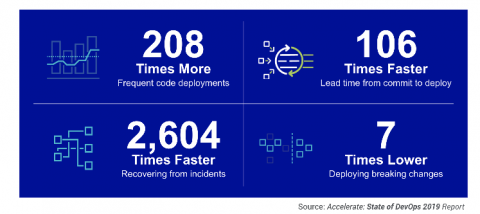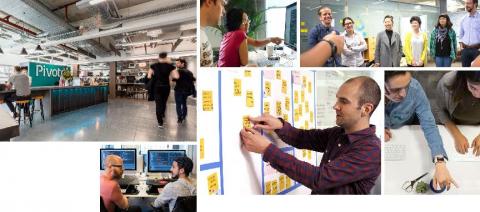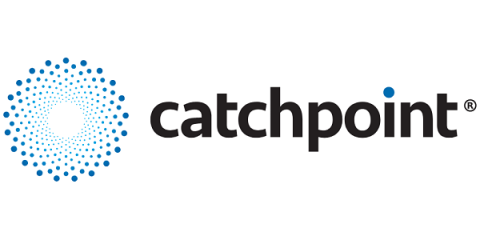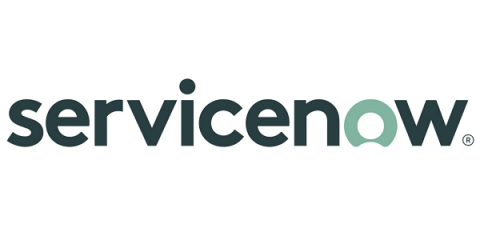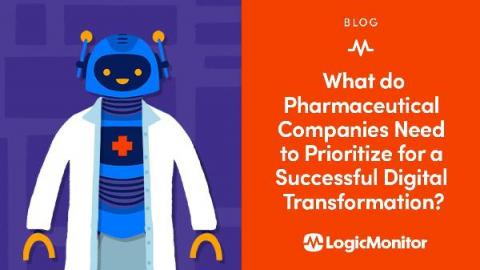Operations | Monitoring | ITSM | DevOps | Cloud
Digital Transformation
Building better software faster - the key to successful digital transformation
Tanzu Talk: what does "digital transformation" mean?
Don't Let Cyberattacks Derail Your Digital Transformation Journey
Need to Kickstart Your Digital Transformation? Start By Changing Your POV
We hear the terms all the time: agile, transformation, developer productivity, employee happiness. Unfortunately, transformation that improves both product and delivery—and that is continuous—can be challenging. Meaningful evolution is hard when everybody involved comes into a transformation process with all sorts of biases deeply embedded.
Digital Transformation: Strategies for Success from Top Tier Enterprises
In our last post on Catchpoint’s 2020 CIO New Normal Survey we talked about how COVID-19 is driving a “reverse industrial revolution” that is fueling a mass exodus from America’s biggest (and most expensive) cities. This week, we focus on a more pragmatic set of findings: the IT lessons that we can learn from those American enterprises that have fared the best during the COVID-19 pandemic.
Digital Transformation for Enterprises - The New Normal of the Remote Workforce
The COVID-19 pandemic has turned our world upside down. Unemployment has soared, entire industries have been impacted, and schools have been shut down. However, one huge change has remained under the radar. We’re on the cusp of witnessing the death of cities as we know them. To understand why let’s rewind to 1870: the start of the industrial revolution in the United States. Industrialization drove people from rural communities to cities.
Best practices for digital transformation in the telecom sector
As a former ‘customer side’ telecom professional, I’m in the fortunate position of having regular and open discussions with CEOs and CIOs across the industry. We talk about the issues and challenges facing the telecom industry and the exciting opportunities for change and growth. Not surprisingly, a major topic among us in recent months has been the impact of the COVID-19 pandemic and the lessons learned from this period.
Hybrid Visibility, Automation Accelerate Digital Transformation at Epsilon
Epsilon, an OpsRamp customer and leader in outcome-based marketing, delivers marketing technology, solutions and services to name-brand clients such as Coach, Walgreens, Dunkin’ Donuts, and Dell/EMC. Acquired in 2019 by Publicis Groupe, Epsilon was recently ranked as a leader in its sector by Forrester. Success though, is a game with no end, and the company has been modernizing its legacy IT infrastructure in the last several years to remain competitive.
What Do Pharmaceutical Companies Need to Prioritize for a Successful Digital Transformation?
Like many industries, the pharmaceutical industry is undergoing a rapid transformation powered by technology. These technologies allow companies to improve business operations and empower the innovation needed to be competitive in today’s market. For pharmaceutical companies, time to market a new product can be costly and time-consuming. In this complex and regulated industry, it can take over a decade to bring a new therapy to market, while costs can total over $2 billion.



